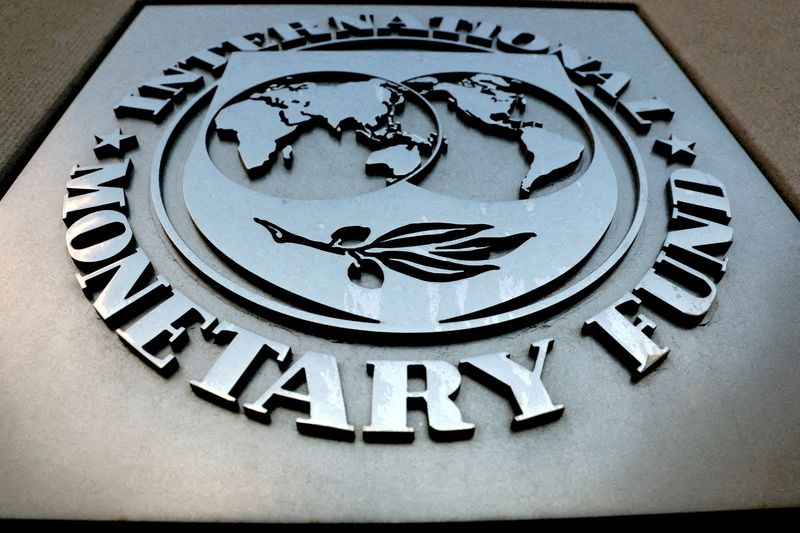
© Reuters. FILE PHOTO: The International Monetary Fund (IMF) logo is seen outside the headquarters building in Washington, U.S., September 4, 2018. REUTERS/Yuri Gripas//File Photo
BEIJING (Reuters) – With a comprehensive package of pro-market reforms, China could grow considerably faster than a status quo scenario, International Monetary Fund (IMF) Managing Director Kristalina Georgieva said on Sunday.
“This additional growth would amount to a 20% expansion of the real economy over the next 15 years, in today’s terms, that is like adding $3.5 trillion to the Chinese economy,” Georgieva said in a speech to the China Development Forum, calling for steps to improve the sustainability of the property sector, reduce debt risks and focus more on domestic consumption.
Decisive steps to reduce the stock of unfinished housing and giving more space for market-based corrections in the property sector could accelerate a solution to current property sector problems and boost consumer and investor confidence, she said.
Premier Li Qiang said in his latest official remarks on the housing sector on Friday that China would further optimise property policy. Earlier this month, Li announced an annual growth goal of around 5% this year, a target some analysts said was ambitious.
China also needs to rely more on domestic consumption, Georgieva said. It can do so by raising incomes, boosting families’ spending power and expanding the social security system, including the pension system, in a “fiscally responsible way”.
China should establish a robust AI regulatory framework, Georgieva said, noting that China leads emerging economies in terms of AI preparedness.
China’s industry ministry in January issued draft guidelines for standardising the AI industry, with the aim to have national and industry-wide standards in place by 2026.
China has “enormous potential in advancing the green economy,” Georgieva said. While China leads in deployment of renewable energy it needs to sell a greater share of electricity at market prices, to decarbonise more efficiently, she said. She also recommended China expand its emissions trading system (ETS) to the industrial sector.
The ETS, which currently covers the power sector, is expected to include new sectors like cement and aluminium by the end of 2025.